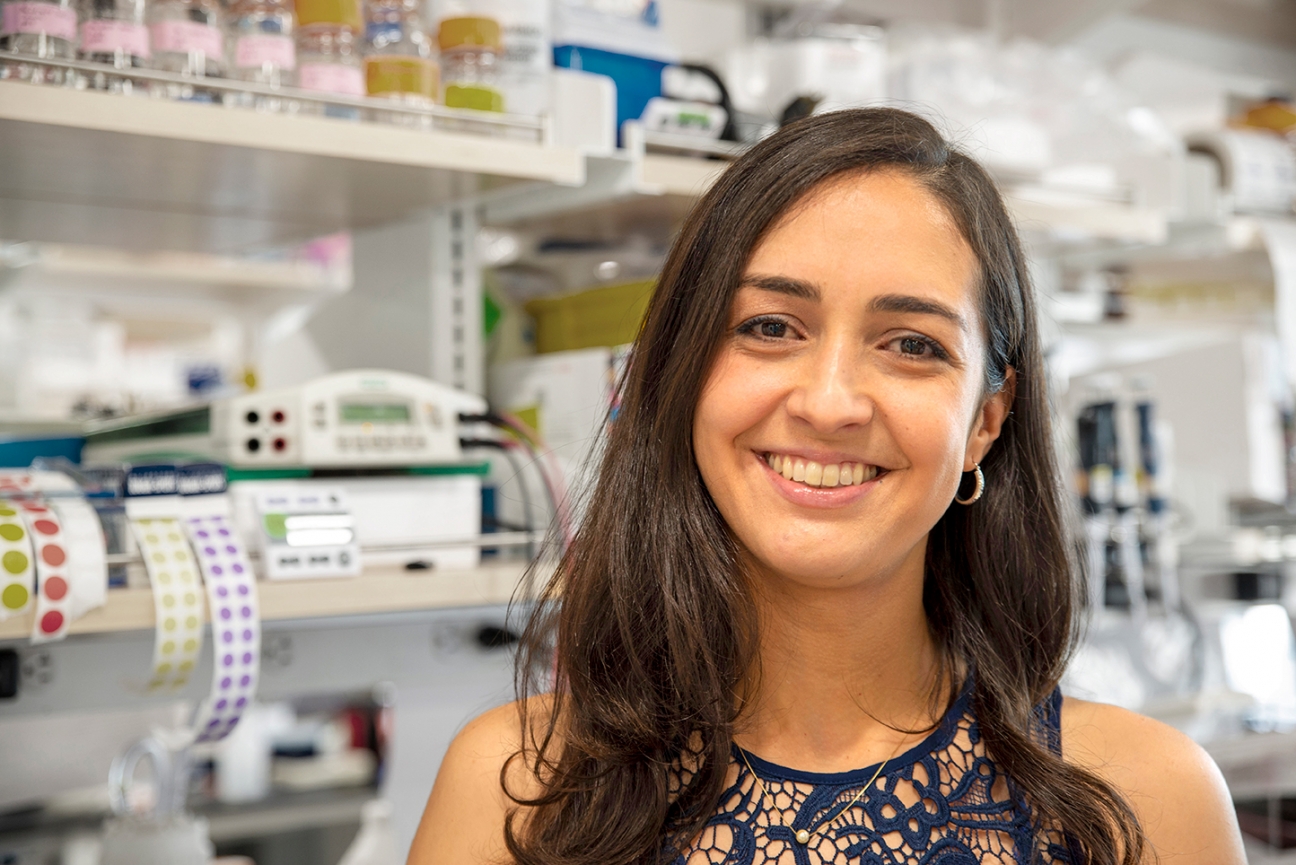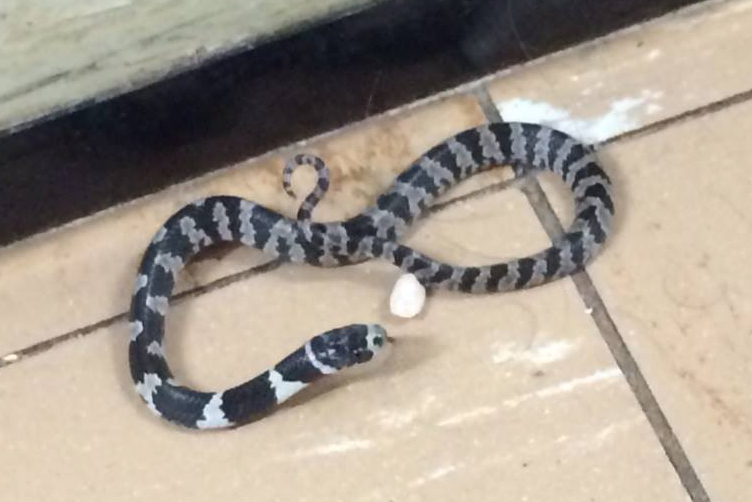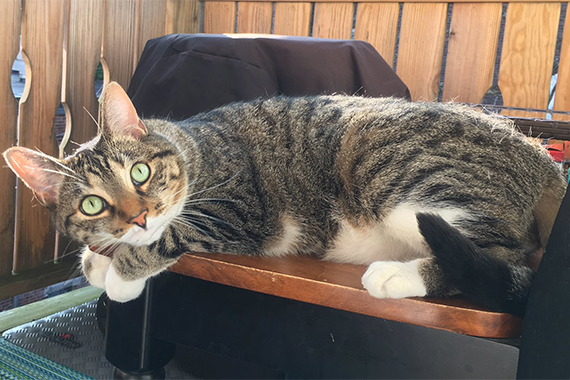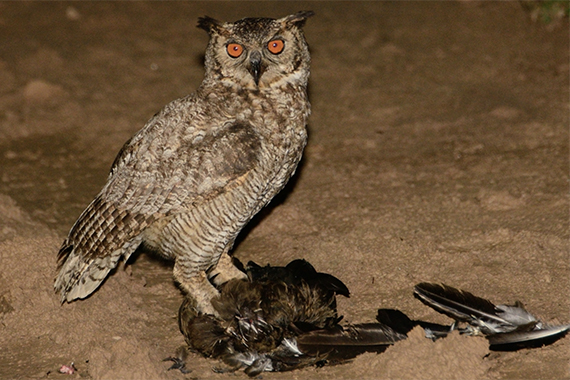
Whitehead postdoc Izabella Pena
Conor Gearin/Whitehead Institute
Meet a Whitehead Postdoc: Izabella Pena
Izabella Pena is a postdoc in Whitehead Institute Member David Sabatini’s lab investigating how toxic proteins associated with neurodegeneration are degraded in cells. We sat down with Pena to learn more about her and her experiences in and out of the lab.
What do you investigate?
Our lab works on how cells perceive their environment and obtain nutrients to grow. My specific focus is on this little organelle called the lysosome, which is basically the waste bin and recycling plant of the cell. It’s a compartment in the cell that degrades and digests cell products, especially toxic proteins and damaged organelles, and recycles some of the nutrients. I'm studying the role that lysosomes play in diseases in which there is a lot of toxic waste, such as neurodegenerative diseases. If you look at the brain of a patient with Alzheimer's, Huntington's, or ALS, you see this buildup of toxic proteins, forming these massive aggregates, in the neurons. I'm curious to see how lysosomes could play a role in that — if they are dysfunctional — and also how lysosomes degrade those aggregates.
How did you end up at Whitehead Institute?
I'm from Brazil, and growing up I always dreamed of coming to the States to do science. I visited MIT for the first time during my undergrad to participate in the iGEM, this really fun genetic engineering competition. I thought MIT was so cool, and I knew that I wanted to come here one day. My PhD was based in Brazil, but my research project took me to other countries and I really enjoyed studying abroad; part of my thesis work was developed in Campinas-São Paulo, and then the other parts in Oxford in the UK and then Ottawa, Canada. After I finished my PhD, I went back to Ottawa to work at the Children’s Hospital of Eastern Ontario for a bit. Then I applied to come to Whitehead Institute for my postdoc. That was a big dream, and I'm very happy to be here and be working with David, who is a great scientist and mentor.
What did you want to be when you were a kid?
I always wanted to be a scientist. I grew up on a little farm, surrounded by animals and the beautiful country full of nature that is Brazil. I was always asking questions. None of my family has a PhD, MD, or is a scientist, but my dad always liked science. He’d show me things like the astronauts going to the moon, and supported my interest. I always really liked nature, so I decided to study biology.
Could you tell me about your science outreach work?
I have done a lot of science outreach over my life. As scientists, I feel we can forget that we do science not only for ourselves, but also for the community. We advance knowledge for humanity. It’s important for us to explain our work to people and to governments. In Canada, I worked a bit closer to the clinical side of things, so I did a lot of science communication with patients and families. We also did a lot of science policy there. We went to the parliament in Canada, and presented our work to show them how important it is for them to fund science, because we can produce great knowledge and we can help people in the long term.
In Brazil, my PhD advisor, Paulo Arruda, led a program to bring high school students to the university, especially students from low-income communities. Some of those people really feel like they have no chance in life. They live in low-income, low-resource communities historically neglected by the government; they're isolated, and they don't have access to good education. Many of those kids don’t even think about going to college because their families are poor, and they need to go right to work to earn money. They think university is for the elites and rich people. We would bring these students to the lab for a summer, or for a few months, in the hopes of getting them excited about science and showing them that it is a career option for them. We tried to support them as much as we could, and give them small scholarships. Some of those students went on to university and decided to go into science, or go to veterinary school. That was great.
These days, I record podcasts on science for the lay public with a group of friends. The podcasts are in Portuguese, for a Brazilian audience. My friends talk about other things as well, but I focus on science. I get guests that know a lot about a specific subject. We’ve done ones on vaccines, aging, women in science, genetic engineering and now a recent one on the Amazon fires. Topics that people have heard about and are curious about. Two of my friends who host the podcast are not scientists, which is great because they will say they don't understand something, and then we can correct ourselves and try to explain in a more accessible format. Even my mom listens to the podcast and can understand the science. I think science podcasts are a great way to reach a broad audience.
What’s the biggest disaster that you’ve ever had in the lab?

Courtesy of Izabella Pena
One day in Brazil, we found a snake in the lab. We worked on the third floor of a building in Campinas-São Paulo, which is surrounded by this beautiful forest called Mata Atlântica. You wake up and there are fresh mangoes and toucans flying. It's amazing. But then one day we found this baby snake. That’s the kind of problem you don’t have here in Cambridge. Everyone was scared, asking what do we do. Eventually we managed to capture and release the snake. Then we created all of these conspiracy theories about how it got up to the third floor. I was talking to my grandmother, and she was saying, “Oh my God, get away from there, because if this is the baby snake, the mom snake is probably around!”
Do you enjoy mentoring?
Yes. Currently, I have an undergrad student from Boston College and a rotation student from the MIT PhD program, and they are great girls. One of my favorite moments this summer was seeing one of them teach the other something she had learned. I think with a career in science, you have to find the things that make you feel happy and rewarded, because that fuels you when you’re dealing with failure, which is common. Experiments are really hard and honestly 95% of them fail. You follow up on the ones that work, but you also need something to help you stay resilient. For me, that thing is mentoring.
Do you feel particularly motivated to mentor other women?
Yes, we need to support women (and minorities) in science. I think this is a really hard career choice for women, especially considering cultural and historical stereotypes and the challenges of raising a family while being a scientist. We have to commit a lot, deal with a lot of challenges, and there are still not enough female PIs to serve as role models. In Ottawa, I had the privilege to work with a very strong woman, Kym Boycott, who is just amazing. She was the only female PI in the institute, and very successful. She’s helped influence a lot of policies there. She taught me that you have to fight, and work to become a senior professor, and when you get there you can change things. What I can do now from my position is support other women around me and my mentees. I can help them navigate, and show them that there’s a way forward through your science and your excellence.
What are your hobbies?

Courtesy of Izabella Pena
I do science communications as a hobby, like the podcast and organizing events such as Pint of Science in Canada. I have a cat, and I know it's silly but he has a twitter account (@MikeScienceCat) where “he” also helps with scicomm. Everybody in the lab knows him. I also really like sports. I go rock climbing and I enjoy biking to be out in nature. I have played volleyball since I was little — in Brazil, either you play soccer or volleyball. Now I'm starting to play here in the MIT gym, with the women’s volleyball club.
I also used to do a lot of birdwatching in Brazil. I'd go every weekend, take a sunny morning and just disappear into the jungle. I really like photographing the birds. In Brazil, there’s this website Wiki Aves, which has really popularized birdwatching. You can post photos of birds that you saw in nature, and share information about the bird and where and when you saw it. Then naturalists and biologists use this data to track the populations and diversity of birds. So you see people birdwatching everywhere now, and it’s helping conservation in Brazil in a time when we really need to protect nature.
What’s your favorite picture that you’ve taken?

Courtesy of Izabella Pena
There’s this place, Pantanal, that is a huge tropical wetland full of alligators. I was there looking for birds at night, and specifically searching for the great horned owl, which are really big and fantastic owls. Usually to look for owls at night, you go with a lantern and try to find the eyes of the birds — they flash in the light — but here you would put the lantern on the ground and there were just so many eyes of alligators looking at you. It was quite scary! But then I lit another angle, and I saw big orange eyes, and there was this massive great horned owl that had captured a duck or a chicken. I got a picture of her standing on top of her prey, and the prey is so big. That was really fun.
Where do you see yourself in ten years?
My dream is to become a professor. I don't know where yet, because with science careers you don't know where you'll end up. If there is an opportunity, I've thought a lot about being a professor in Brazil to do something for my country. We are going through a rough time for science back there, but I hope in few years the situation will be better. I want to teach, have a lab, and have a family hopefully. I want to keep doing science communication, and keep making time for fun things. If I end up back in Brazil, I will definitely continue to do a lot of birdwatching.
Contact
Communications and Public Affairs
Phone: 617-452-4630
Email: newsroom@wi.mit.edu


